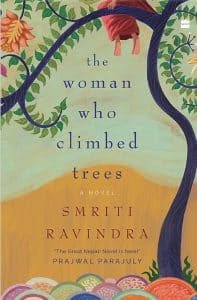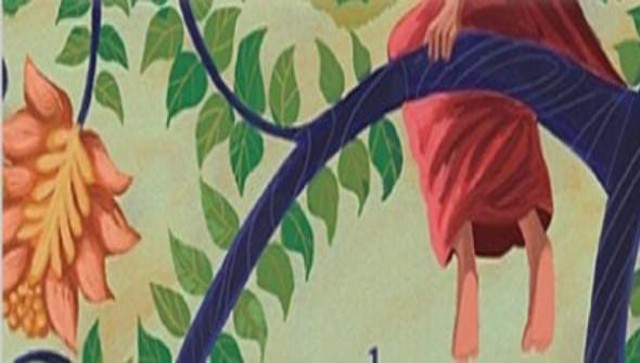The literary landscape of Nepal is enriched by numerous authors who write in English, and some of them have garnered international acclaim for their works. Despite the long-standing history of literature in Nepal, it wasn’t until the early decade of the 2000s that Nepali writing in English caught significant global attention. This recognition was propelled by the publication of influential works such as Manjushree Thapa’s The Tutor of History, Samrat Upadhyay’s Arresting God in Kathmandu, and Prajwal Parajuly’s The Gurkha’s Daughter and Land Where I Flee. These exceptional literary contributions played a pivotal role in thrusting Nepali authors writing in English into the spotlight of the global literary stage. Among this talented cohort of authors, Smriti Ravindra made her impressive debut with her magnum opus, The Women Who Climbed the Tree, published by HarperCollins, adding to the rich tapestry of Nepali literature in English. Smriti Ravindra, the author, has crafted a beautifully written novel that appears to draw inspiration from her own intimate experiences with the world. The Women Who Climbed the Tree presents the captivating journey of Meena, a resilient and determined woman who faces numerous challenges in the aftermath of her marriage to Manmohan. Meena is fourteen years old when her parents marry her to Manmohan, a twenty-one-year-old Nepali boy she has never met. As is customary, she must leave her childhood home - along with everything and everyone she’s ever known - to relocate to Nepal and embrace the home and identity of her husband’s family. [caption id=“attachment_12932432” align=“alignnone” width=“515”] The Woman Who Climbed Trees: A Novel by Smriti Ravindra.
The Woman Who Climbed Trees: A Novel by Smriti Ravindra.
Published by: HarperCollins.
Price: INR 499[/caption] Through Meena’s struggles, the author beautifully portrays the courage and strength required to surmount societal barriers and personal adversities. What stands out is the enduring nature of certain societal norms and customs, which continue to influence the lives of women within the family. Manmohan is in college and spends most of the year in Kathmandu, far away from the little village Meena is confined in, leaving her alone with her demanding mother-in-law as she gradually finds comfort and love in her sister-in-law. This narrative celebrates the essence of women. It delves into the intricacies of their lives, capturing moments of sheer joy, the intoxicating allure of lust, the weight of suffering, the scars of pain and trauma, and the unbreakable connections they forge with one another. It is also a story that sings of friendship’s resilience, solidarity’s strength, and love’s tender embrace. But amidst the harmony, it mourns the profound losses that women bear across generations, their emotions spanning the spectrum of happiness and madness. The author astutely highlights the plight of women who are often relegated to the role of mere servants, their talents wasted in the thankless job of housekeeping. The Women Who Climbed the Tree is a powerful portrayal of the challenges women face in traditional societies and the remarkable courage required to conquer such adversities. The author’s portrayal of a society that perpetuates this imbalance is commendable, as it sheds light on the barriers preventing women from forming strong bonds with one another. Instead, they are compelled to centre their lives around men, perpetuating a cycle that perpetuates gender inequality and stifles women’s true potential. As Meena’s daughter confronts similar challenges, the story takes on a universal quality, reflecting the cyclical nature of life that transcends cultural boundaries and resonates with readers from all walks of life. This emotionally charged and thought-provoking narrative is sure to enthral those who appreciate stories that celebrate the indomitable spirit of women and delve into the complexities of their journeys. Within the pages of this exquisite tale, a world of magic and madness unfolds, painting a poignant picture of elephants and snakes, kings and their cruelty, children revelling in joy, and the abundant life of flora and fauna – all interwoven into a rich tapestry of emotions. This heart-wrenching saga resonates deeply, and once you begin the journey, it becomes utterly impossible to tear yourself away. The events unfold with such vividness that readers are bound to feel as though they are witnessing them firsthand. Adding to the allure of the narrative are paranormal elements which infuse the story with a thrilling sense of mystery while enriching its cultural context. As I delved deeper into the narrative, a surge of excitement filled me as the story mentioned my hometown and neighbourhood Madhubani, Darbhanga, Jaynagar, and Janakpur. Anticipating the direction the story might take, I found myself even more engrossed in the unfolding tale. Though a work of fiction, the author’s impressive writing style brings the story to life, immersing readers in a world that feels remarkably real and engaging. The language employed throughout the book is lucid, making the story easily accessible, and the fast-paced writing style keeps readers enthralled from the first page itself. The novel is a remarkable tale that seamlessly weaves together the ordinary and the supernatural, leaving a lasting impression on all who embark on this literary journey. A true masterpiece that celebrates the indomitable spirit of women and leaves an indelible mark on the soul. Smriti’s novel leaves a lasting impression on readers’ minds. The reviewer is a Bengaluru-based management professional, literary critic, and co-director of the Kalinga Literary Festival. He can be reached at
ashutoshbthakur@gmail.com
. Views expressed in the above piece are personal and solely that of the author. They do not necessarily reflect Firstpost_’s views._ Read all the
Latest News
,
Trending News
,
Cricket News
,
Bollywood News
, India News
and
Entertainment News
here. Follow us on
Facebook
,
Twitter
and
Instagram
.
Book review | Smriti Ravindra's novel indelibly portrays challenges women face in traditional societies
Ashutosh Kumar Thakur
• July 29, 2023, 14:27:50 IST
“The Women Who Climbed the Tree” celebrates the essence of women. It delves into the intricacies of their lives, capturing moments of sheer joy, the intoxicating allure of lust, the weight of suffering, the scars of pain and trauma, and the unbreakable connections they forge with one another
Advertisement
)
End of Article